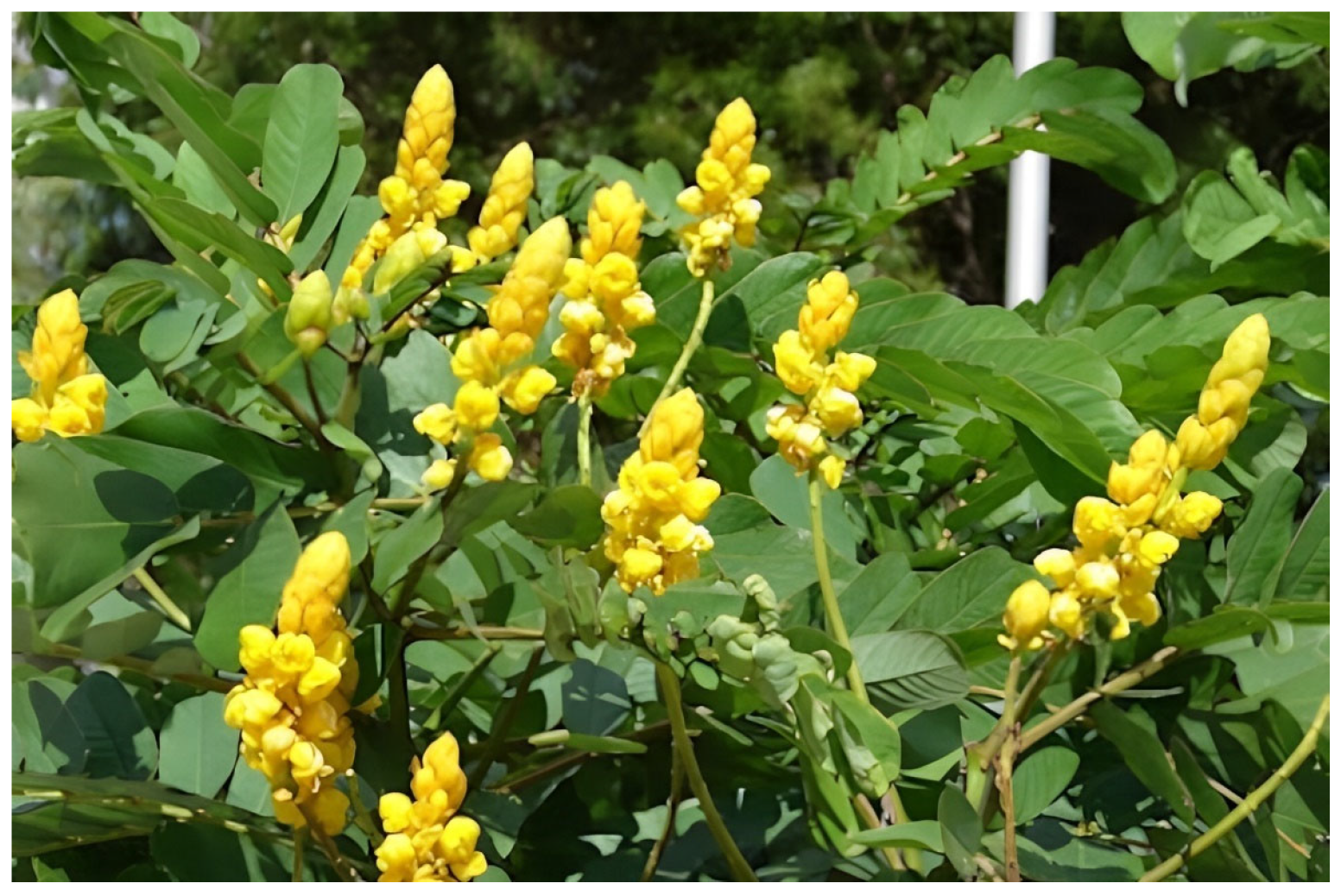Welcome to your holistic living

Botanical Name: Cassia alata Linnaeus
Family: Caesalpiniaceae
English Name: Ringworm Cassia., Candle Bush, Large-leafletted Eglandular Senna
Malayalam Name: Malamtakara, Puzhukkadittakara, Seema Agatti
Hindi Name: Prapunnad, Ergaj, Dadmurdan
This plant, a 6 – 25 feet tall, perennial shrub, has erect waxy yellow spikes that resemble fat candles before the individual blossoms open. The large leaves are bilateral – symetrical opposed and fold together at night. The fruit is a pod, while the seeds are small and square. Its plants, seeds are edible. Leaves are used as vegetables.
Seeds, shoots, leaves, roots
1. Diabetes Management: Cassia alata contains compounds like kaempferol and quercetin that exhibit anti-diabetic properties, helping to lower blood glucose levels. 2. Laxative and Diuretic: The plant is used traditionally in some cultures as a laxative for constipation and as a diuretic to increase urine output. 3. Antioxidant Effects: It possesses antioxidant properties that protect the body from damage caused by free radicals. 4. Skin Infections: The plant's antibacterial, antifungal, and dermatophytic properties make it effective for treating skin conditions such as ringworm, eczema, and other fungal infections. 5. Inflammation: It helps soothe inflamed skin by reducing redness, swelling, and itching associated with eczema and other dermatoses. 6. Wound Healing: Extracts from Cassia alata promote wound healing and can prevent bacterial growth on the skin, supporting the recovery of injured areas.
Antifungal activity ,diuretic, purgative, woundhealing, hypoglycaemic,anti-bacterial,anthelmintic,analgesic,anti inflammatory,Abortifacient and Anti-lipogenic activity
Rasa: Tikta , Kashaya
Guna: Laghu, Ruksha
Virya: Sita
Vipaka: Katu
Dosha Karma: Kapha vata shamaka